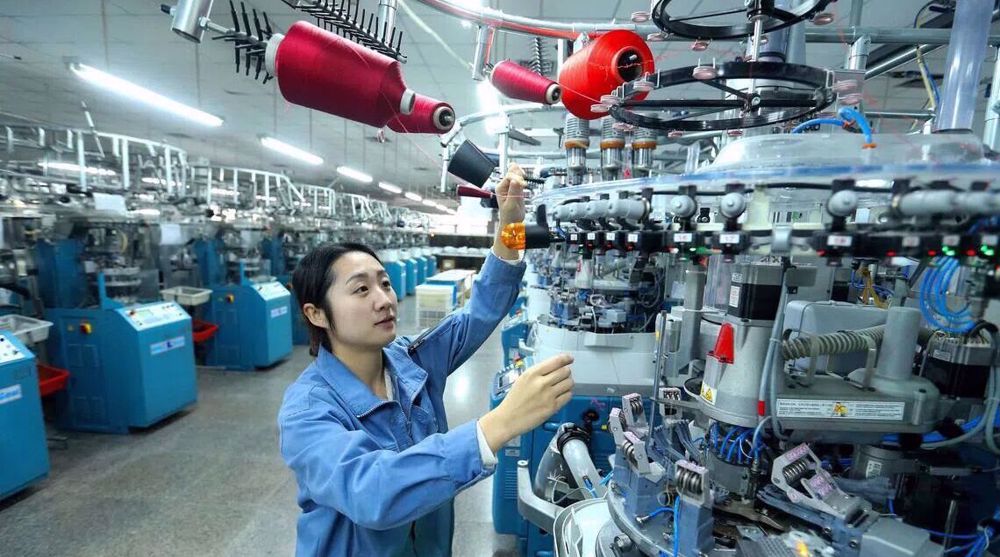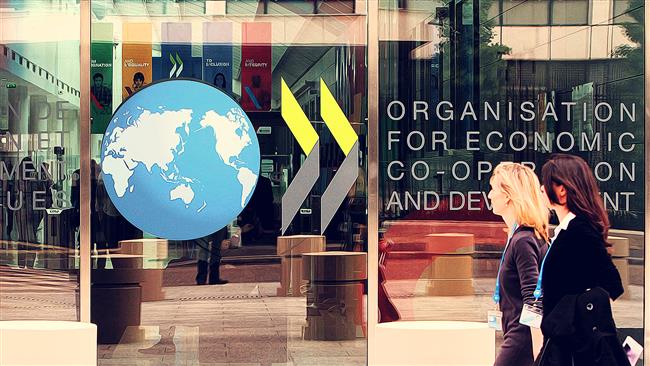OECD urges world to respect trade rules
Governments should stick to established rules of trade and avoid escalating disputes if they want to safeguard economic growth and protect jobs, the OECD said Tuesday.
The Organization for Economic Cooperation and Development's call comes amid a deepening row over US tariffs on steel and aluminum that has brought on fears of a global trade war.
"Trade protectionism remains a key risk that would negatively affect confidence, investment and jobs," the OECD said in its interim report on the world economy.
The OECD identified protectionism as a major risk factor in an otherwise upbeat outlook for the world economy which it now expects to grow faster than in its previous projections published in November.
The OECD put global economic growth at 3.9 percent for this year, up 0.2 points from previous expectations, and again 3.9 percent for 2019, an increase of 0.3 points over its previous call.
World growth was 3.7 percent in 2017.
Contributing to the positive outlook were tax reductions and increased spending in the world's largest economy, the United States, and fiscal stimulus in Europe's economic powerhouse Germany, according to the OECD.
The report, titled "Getting stronger, but tensions rising", came as fears grew that the war of words over trade and tariffs may damage long-established US trade ties with allies around the world, especially in Europe.
"Safeguarding the rules-based international trading system will help support growth and jobs," the Paris-based OECD said.
"Governments should avoid escalation and rely on global solutions to resolve excess capacity in the global steel industry," it said.
It stopped short of singling anyone out, but appeared to target President Donald Trump's "America First" administration.

Trump last week announced duties of 25 percent on imported steel and 10 percent on aluminum, though his government has said it will consider exceptions and has already spared Mexico and Canada.
The tensions have also heightened fears for the global multilateral system that lays a level playing field for governments around the world.
The OECD appeared to take another jab at Trump -- again, without naming him -- saying that governments should avoid fiscal policy choices that are "excessively pro-cyclical", meaning further heating up an economy already firing on all cylinders.
It also said that governments should use the cushion of stronger growth to overhaul their economies.
"Structural reforms should be revived, seizing the opportunity of the stronger economy to help secure a more robust recovery of productivity, investment and living standards," the report said.
While the global outlook had not quite returned to pre-economic crisis levels, stronger investment and improved global trade were nonetheless signs that the world economy is definitely on the mend a decade after the worst recession since the Great Depression of the 1930s.
For the first time, OECD-wide unemployment fell in 2017 below its pre-crisis rate, the report said.
But the recovery was "uneven", the report said, noting that "prime-age and youth employment rates ... only at, or still below, pre-crisis levels in many countries, including the United States".
(Source: AFP)
VIDEO | Northern Morocco braces for flooding amid heavy rain
#IR47: How 1979 Islamic Revolution reshaped women’s role in Iran's medical sector
US pursues ‘neither war, nor peace’ strategy to sustain pressure on Iran: Ex-diplomat
VIDEO | Iranian family mourns father killed in foreign-backed violence
VIDEO | Pakistan observes Kashmir Solidarity Day
VIDEO | Cultural exhibition in India marks 47 years of Iran’s Islamic Revolution
VIDEO | Pakistan pushes indigenous defense industry as global buyers seek alternatives
VIDEO | Al-Shifa receives martyrs' bodies amid organ theft worries














 This makes it easy to access the Press TV website
This makes it easy to access the Press TV website